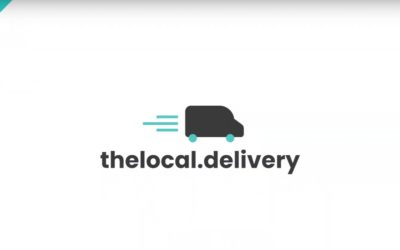1. Subscription Marketing
Subscription marketing is a versatile digital strategy as it enables businesses create brand advocacy and, somewhat, consistency in month-to-month sales. It also allows smaller brands to be less reliant on supermarket partnerships for stability, and can support a better level of forecasting for future sales.
A brilliant example and roaring success of this marketing method is Pasta Evangelists. Delivering fresh pasta meals to your door, they have seen a considerable growth, with sales quadrupling over the pandemic.
For those in the food and drink market, consider how you can offer your product on a weekly, monthly or bi-monthly basis – meaning people can have your products as part of their meals, or ‘take to work’ on a regular basis without lifting a finger. It will create a stronger marketing database, loyalty retention, and of course consistent sales.
2. Ranking in Google’s 2021 page experience update
Early next year, Google will be running a page experience update that will alter how businesses rank for keywords onsite. You can expect to see new ‘core web vitals’ as part of their page ranking algorithm such as loading, interactivity and visual stability. SEOs are already preparing websites to cater to these updates.
This update will not only impact search results. It will change how development, SEO and UX teams work together. All three need to collaborate to maximise a site’s online performance, but this update shows the evolution of Google’s algorithm.
Look to update your onsite content to compliment these core vitals and optimise in preparation to minimise the risk of being negatively affected by the algorithm.
3. Localised SEO
Traffic growth through keyword ranking is the main purpose of SEO, and for many companies’ websites, localised SEO is not anything new. However, with people shopping closer to home and exploring their local area more due to restrictions, usage of maps for query searches is expected to have risen significantly.
As a convenience store or eCommerce seller, it’s important to make sure your localised SEO is in top nick. Adding a geographical suffix makes search terms instantly less competitive, therefore, easier for smaller brands to dominant first page rankings for consumables. Also make sure things such as opening hours are public and up-to-date, as many people are checking these before they visit a store to avoid disappointment.
4. Amazon Marketplace
Amazon are growing considerably in online grocery shares, competing against supermarkets. Currently focusing heavily on the ‘vegan’ food & drink niche, they are outranking vegan stores or sites offering vegan products, as they have top domain authority from search engines.
Amazon currently takes 15% of profits from sellers, and in return take your brand awareness national or global. Used correctly as part of a larger digital marketing strategy, it can bolster your brand authenticity and consumer trust levels. If Amazon Marketplace is part of a digital strategy, it’s important to ensure product meta titles and descriptions match that of the website’s product page, so you’re ranking closely to the Amazon product listing in organic searches, reinforcing trust levels.













